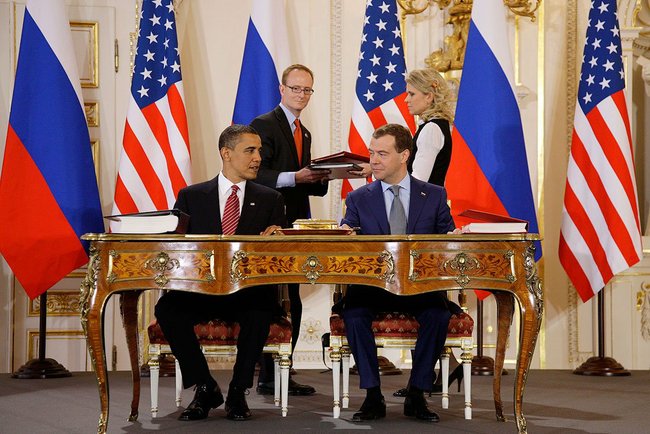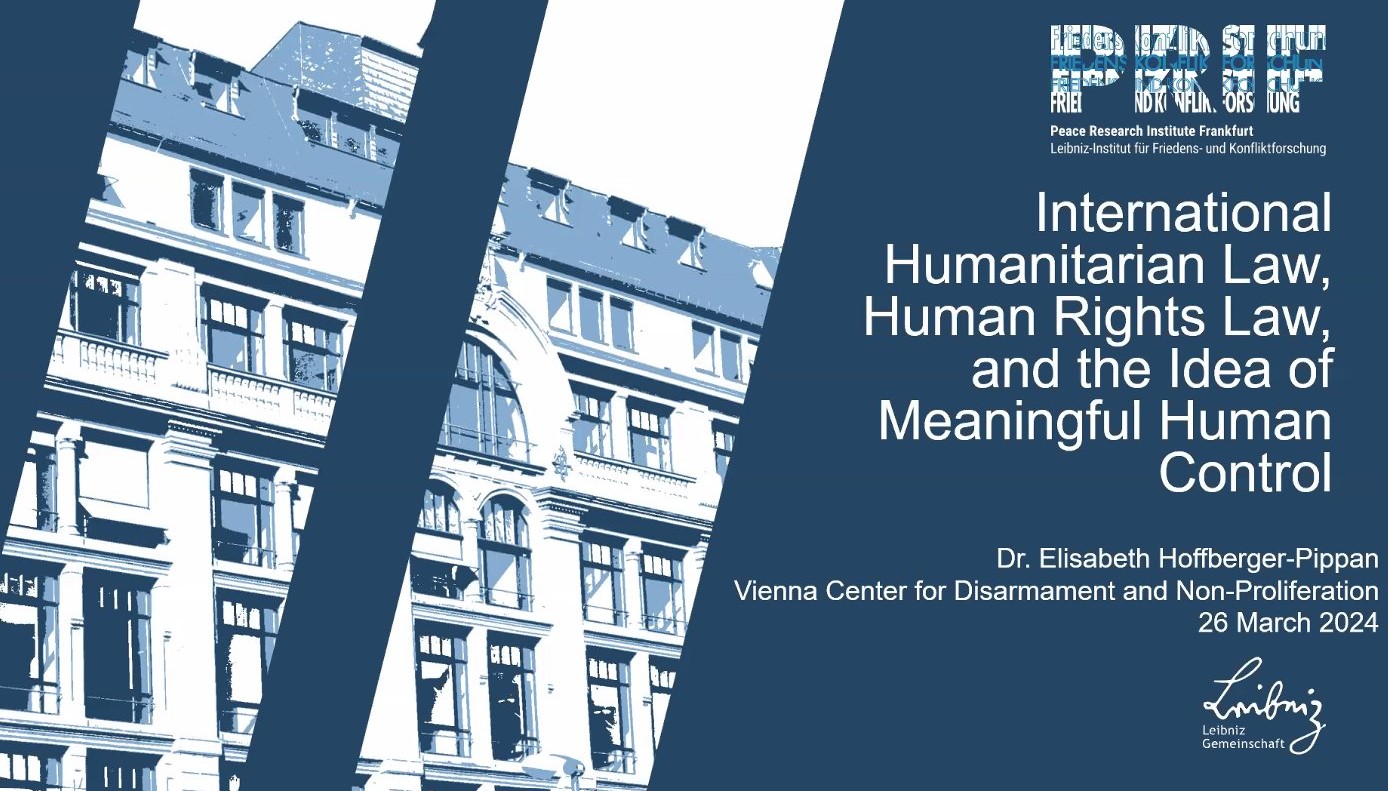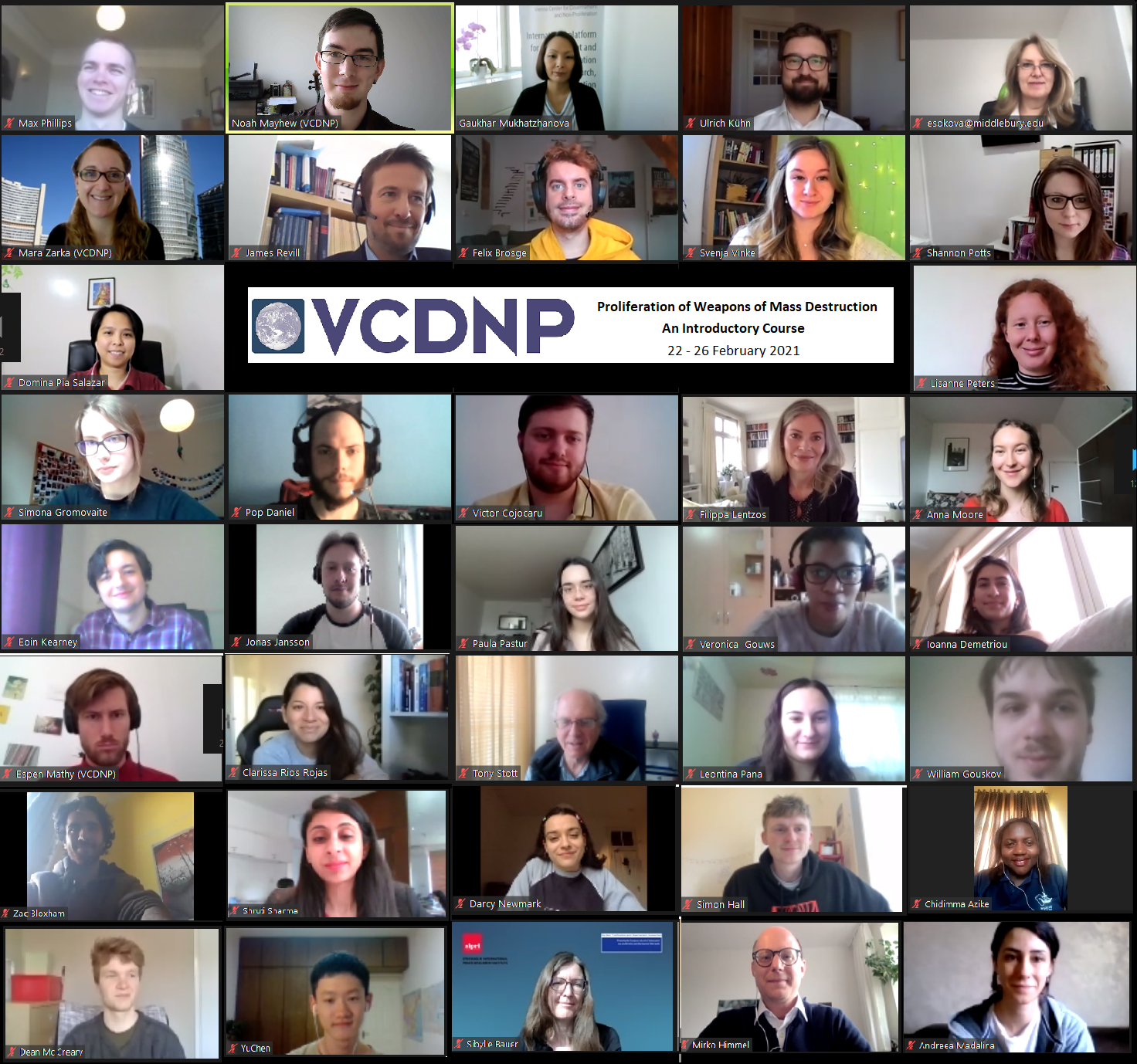
From 22 to 26 February 2021, the VCDNP held its first intensive introductory course on the proliferation of weapons of mass destruction (WMD) for students of biological and chemical sciences. The course, conducted in an online format, brought together 29 students affiliated with eight European universities as well as universities in Nigeria, the Philippines, and Russia. Women made up 59 percent of the participants.
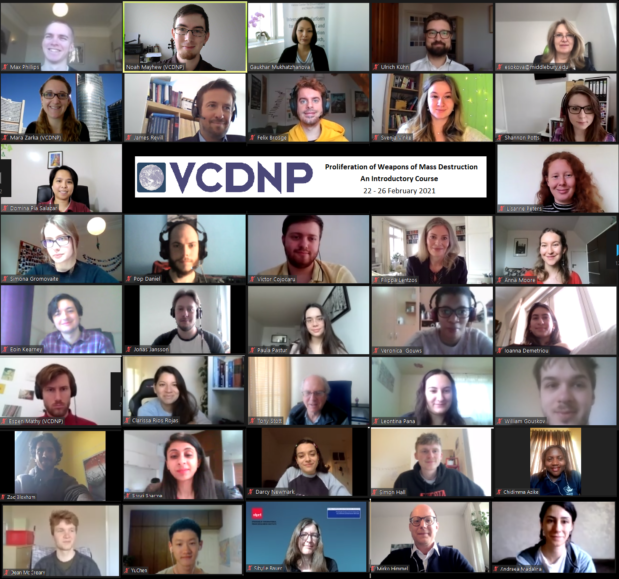
The course covered a broad range of topics and was designed to provide an overview of the basics of biological, chemical and nuclear weapons and their proliferation, existing control regimes, and potential impact of new and emerging technologies on WMD threats.
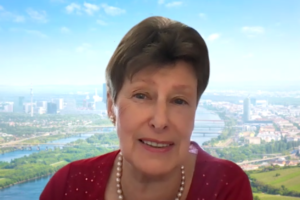
Students learned about various elements of the international WMD disarmament and non-proliferation regimes, including the Biological and Toxin Weapons Convention (BWC), the Chemical Weapons Convention (CWC), and the Treaty on the Non-Proliferation of Nuclear Weapons (NPT), as well as strategic trade controls. Course sessions also provided an in-depth look at the advances in life sciences and their implications for chemical and biological weapon threats. The programme included case studies on biosecurity and ethics, nuclear proliferation challenges, and investigation of chemical weapons use and dismantlement of a chemical weapons arsenal.
A panel discussion on new and emerging technologies featuring Dr. Filippa Lentzos (King’s College London), Dr. Ulrich Kühn (IFSH), and Dr. James Revill (UNIDIR) allowed for a candid exchange of opinions concerning the threats and opportunities these technologies present for mitigating WMD risks.

Experts and senior officials from international organisations and academic institutions that presented at the course included Dr. Sibylle Bauer (SIPRI), Daniel Feakes (BWC Implementation Support Unit), Dr. Mirko Himmel (University of Hamburg), Dr. Peter Hotchkiss (OPCW), Dr. Ulrich Kühn (IFSH), Dr. Filippa Lentzos (King’s College London), Dr. James Revill (UNIDIR), Dr. Clarissa Rios Rojas (Cambridge University), Shruti Sharma (Carnegie Endowment for International Peace, India), and Jerry Smith (CHC Global, former OPCW Team Leader). The VCDNP lecturers included Angela Kane, Gaukhar Mukhatzhanova, and Elena Sokova. Women made up 54 percent of the lecturers.

At the end of the course, the participants completed a questionnaire, which gave them an opportunity to assess various aspects of the short course and anonymously provide feedback. Overall, the participants rated the course as an excellent contribution to their knowledge and understanding of issues related to WMD proliferation risks. Below are some of the comments provided by participants (quoted as written):
It introduced me to the world of non-proliferation and how important it is for our world. It also helped me understand all the mechanism[s] that are necessary to implement the controls and the tough job behind all of this.
***
As an undergraduate student, it is very rare that we are taught about the ethical side of what we are doing. Recently there have been some improvements in teaching about sustainability concerns, but this course has been basically the only formal education on security threats that our research may pose. I would say that I have learned a lot on the matter, and that I now have a base and some pointers to continue my education in this topic.
***
This course offered me a complete picture of all weapons of mass destruction but also of possible future risks. Amazing speakers and wonderful presentation of all key points.
***
Thank you for having this course for students with science background. This course will greatly help us understand that there is more that science can offer in terms of international peace, security and stability.
The VCDNP extends its gratitude to the EU Non-Proliferation and Disarmament Consortium for their generous support that made this course possible. The course was funded by the European Union through the EUNPDC pursuant to the EU Council Decision 2018/299.






